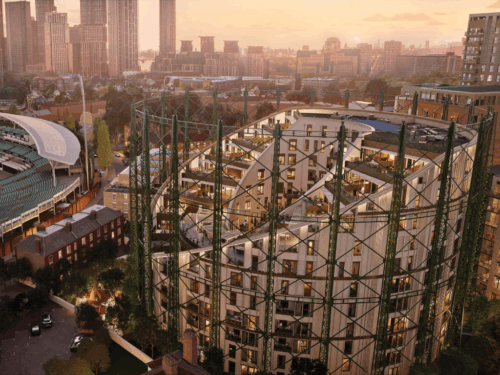
What is Gateway 2?
Gateway 2 introduces strict new requirements for high-risk buildings. This article explains what it is, what’s required, and how utility providers can support a smooth submission.
In the UK, Gateway 2 was introduced under the Building Safety Act 2022, as a mandatory “hard stop” checkpoint in the construction of higher-risk buildings. It requires approval from the Building Safety Regulator (BSR) before any building work can begin. This stage replaces the traditional “deposit of plans” phase of the building control process.
Purpose
The primary purpose of Gateway 2 is to ensure that comprehensive and compliant design plans are in place from the outset, moving away from past practices that led to unsafe designs progressing to construction. To pass Gateway 2, a detailed application must be submitted to the BSR, where it is reviewed by a multi-disciplinary team of experts.
Requirements
The application must include detailed plans. These comprise full architectural, fire safety, and structural designs that demonstrate how the project meets building regulations. A competence declaration is required confirming that the principal contractor and principal designer have the necessary skills, knowledge, and experience. A construction control plan must detail how building safety will be managed and maintained during the construction process, and a change control plan must provide a strategy for managing and documenting any design changes during construction. Furthermore, an occurrence reporting plan is mandatory to outline how significant safety issues or near-misses will be reported to the BSR. Finally, the ‘Golden
Thread’ information must confirm how a digital record of all building information will be established and maintained.
Context
Perhaps unsurprisingly, Gateway 2 is the second of three statutory checkpoints for higher-risk buildings in England. Gateway 1 occurs at the planning application stage, where a fire statement is submitted for review by the Health and Safety Executive (HSE), which acts as a statutory consultee for the BSR. Gateway 2 occurs preconstruction at the building control approval stage. Construction work cannot start until the BSR is satisfied that the plans are compliant and issues its approval. Gateway 3 is the final checkpoint, pre-occupation, where a completion certificate is issued by the BSR only after it is satisfied that the as-built project is safe to occupy.
Gateway 2 Enabling Service
BSR is currently experiencing backlogs and high rejection rates for invalid or incomplete applications. Failure to get the submission right the first time could mean significant and costly project delays.
Power On works directly with you to ensure you have the required design aspects for fire safety fully in place and we are now providing a Gateway 2 Enabling Service to assist in the process. This includes a system for navigating the deliverables to ensure that all parties are aligned and that timelines will be met.
Ensuring the right information is delivered to the utilities company in the first place, in order to get the right outputs, can prove problematic and may hold up the whole process. Our Gateway 2 Enabling Service ensures the correct input and, therefore, the correct outputs. Depending on required timescales, we can at the Gateway 2 stage supply the entire design pack or, the individual parts of the design that are vital to the particular project to enable a fast turnaround on the essential elements. A carefully collated Building Operator Pack provides an easy format for transferring the key building owner information in a consistent manner.
Further news at Power On...
- News

Ready for Ofgem? Heat Network Compliance in high-rises
From January 2026, OFGEM will regulate heat networks across the UK, introducing new standards for efficiency, pricing and consumer protection. This article explains what the changes mean for high-rise developments and how developers can prepare with future-proof, low-carbon heating solutions.
- News

Power On adopts utilities networks and heat centre at Oval Village development
We’re delivering and adopting the full multi-utility and low-carbon heat network for Oval Village - a landmark regeneration project overlooking The Oval in central London.
- News

How to cool high-rise buildings
With hotter summers and tightening regulations, overheating is a growing challenge. Ground source heat pumps provide a sustainable, low-cost cooling solution.
